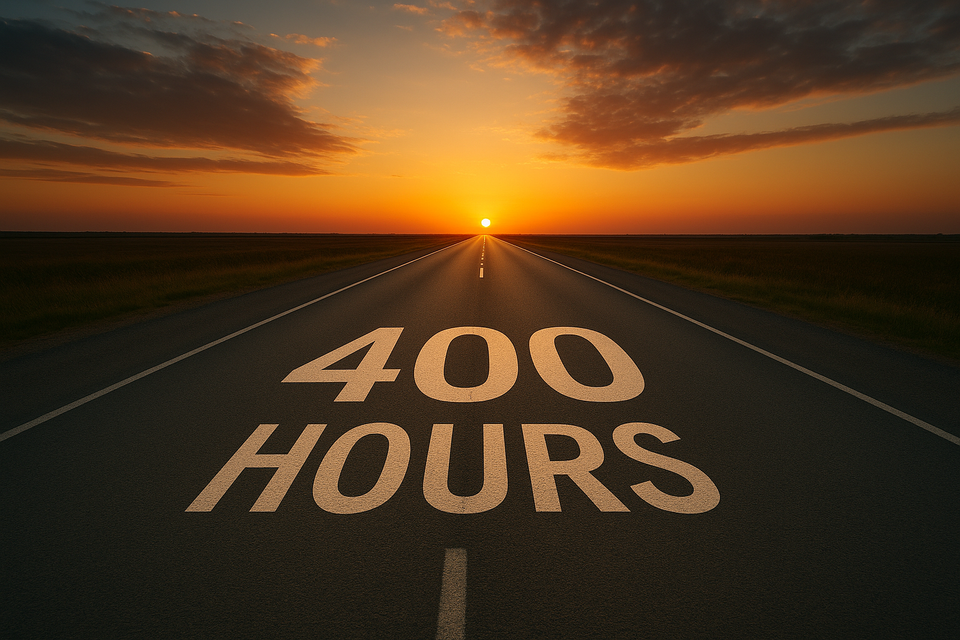Purposeful Pareto: 400 hours is all you need to become ‘not half bad’

10,000 hours, they say. Malcolm Gladwell first popularised the principle — in 2008, his book Outliers was in no small part based on the principle that greatness didn’t happen overnight but required a large, seemingly measurable amount of effort to achieve.
Unsurprisingly, the theory has never been proven. Rather, very clever people have said it is wrong, in that no magic number of hours exists. Some people require less time and some considerably more, such that the overall estimate is invariably an average. Furthermore it differs from field to field. “It doesn’t apply to sports,” Gladwell was later to say.
Oh yes it does, table tennis champion Matthew Syed would no doubt reply, given his own experiences. Syed coined the term ‘purposeful practice’ to capture all that anyone needs to know_ if you want to succeed, you need to work at it, and you need to focus on a goal.
The fact is we all know that the principle holds true, whatever the academics say. We’ve all heard the stories, we understand that there can be exceptions, the child prodigies (who may have just started a bit younger, to be fair), or the genuine heroes and savants.We also know just how unattainable it is. 10,000 hours, are you crazy? That’s an hour a day for 27 years! Who even has that time, never mind the focus and diligence required?
Forget it. It’s not going to happen.And thus the majority of us, who have neither the time nor the inclination to become stars, resign ourselves to our sofa-side views from where we can follow the exploits of others, only occasionally wondering ‘what if…”But what if that were not the full story? Another principle, equally fallible as a golden rule, is the Pareto Principle, that 80% of the outcomes stem from 20% of the causes. While this is also a heuristic based on averages and it varies across fields, we all know in our hearts that it, well, kind of works.
What nobody seems to have clicked on is that the two principles can work in tandem. Purposeful Pareto suggests that, when trying to achieve a goal, 20% of the effort will get you 80% of the way there. In other words, 400 hours will get you to a state of, in the parlance, ‘not half bad’.
For corroboration we only need to reference another law, that of diminishing returns. You know, that graph that shows how the closer you are to a goal, the harder it becomes to achieve. In this law, the first segment of effort delivers the most benefit; then comes a drawn-out period of hard slog; and finally, an even longer period of sheer determination to become the best.
But. As we have already realised, being the best is only ever an option for the few. If we have already ruled that out, neither the hard slog nor the sheer determination retain much merit. However, and as an alternative to the sofa, ‘not half bad’ still has much to be said for it.
I’ve found this myself. A couple of years ago I decided to take my running up to the next level, following a few years of just enjoying the jog. Following once a week in the gym and some serious effort pounding the roads of the Cotswolds, I have arrived at a state of being not half bad. And that makes me very happy.
It’s the same story with writing. At the turn of the millennium I was not, with the best will in the world, a brilliant writer. Nor will I ever be, to be frank. After a couple of years of essentially writing for a living however, I got the hang of it. And while I will never rank with the greats, I can at least string a few sentences together. I’m pretty cool with that.
The point is, we don’t all have to be Olympic superstars, musical prodigies or Zen masters. But neither do we have to resign ourselves to our couches. There’s a world of opportunity out there to explore and, indeed, to achieve a few things along the way, bringing both pleasure and fulfilment. Which is not half bad in itself.
